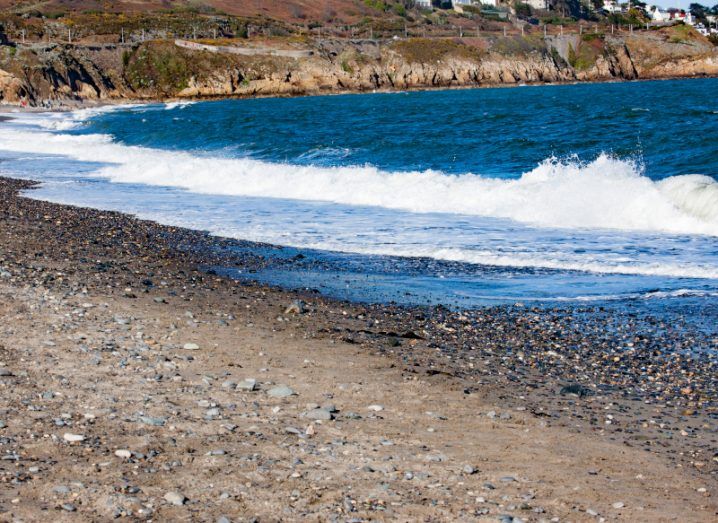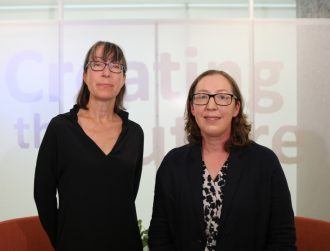
Killiney beach in 2008. Image: William Murphy/Flickr (CC BY-SA 2.0)
300 pebbles with RFID transponders will be released on two Irish beaches, in order to track their movements and raise awareness about climate risks for coastal areas.
Instead of simply skipping stones, students are taking to Ireland’s beaches to help monitor the effects of the climate crisis.
A group of primary and secondary-school students are placing 300 specially adapted pebbles on Dublin’s Killiney Beach and Sligo’s Raghly Beach, in order to track coastal erosion.
This ‘smart pebbles’ project aims to help coastal communities deal with the impacts of the climate crisis using digital technologies.
It is being led by Dr Chiara Cocco and Dr Francesco Pilla, two researchers from Lero – the Science Foundation Ireland Research Centre for Software – and Dr Iulia Anton from Atlantic Technological University in Sligo.
These pebbles are radio frequency identification (RFID) enabled, which means researchers will be able to track them after they’re placed along shorelines.
Cocco said the project involves a collaboration with school students and Dalkey’s Tidy Towns group, who will work together to release and monitor these pebbles.
“Each ‘smart’ pebble, painted yellow and typically about 10cm in size, has an RFID transponder cemented into drilled holes, enabling us to trace the impacts of erosion and their movements over the coming months,” Cocco said.
Anton said each pebble will also be 3D-scanned by the students, which will be used to track abrasions and markings.
“These citizen science results will be analysed in the lab utilising algorithms to determine climate-change impacts on coastal erosion on the beach,” Anton said.
This initiative is part of the €10m European-wide SCORE project, which aims to increase climate resilience in European coastal cities.
The researchers said the smart pebble project also aims to raise awareness about the climate risks that exist in coastal urban areas.
“This citizen science initiative not only fosters environmental stewardship but also empowers the younger generation to engage in climate-resilience efforts actively,” Anton said.
In February, Lero was awarded a European prize in recognition of its commitment to open-science principles.
10 things you need to know direct to your inbox every weekday. Sign up for the Daily Brief, Silicon Republic’s digest of essential sci-tech news.
Killiney beach in 2008. Image: William Murphy via Flickr (CC BY-SA 2.0)






